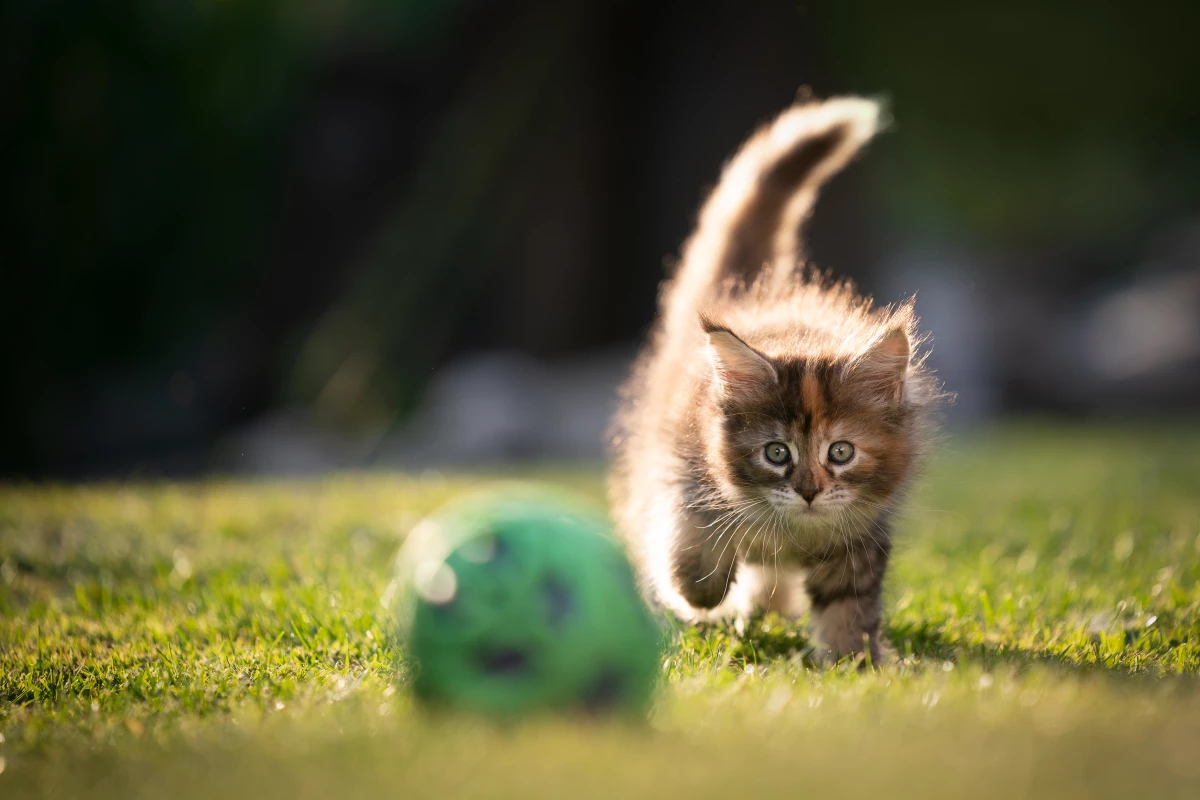While some pet owners may disagree, it's widely accepted that around 80% of dogs will engage in fetching 'play' behaviors with their humans. But scientists have now found out that almost half of domesticated cats will also chase and return objects to their owners.
In a massive study of more than 8,000 cat owners, Purdue University researchers assessed whether their feline companions would exhibit this behavior more commonly recognized in dogs. Some 78% of almost 74,000 dog owners said their four-legged friends "played fetch," but the real surprise was that 41% of cats also enjoyed this activity.
"Fetching was reported in 40.9% of cats and 77.8% of dogs," the researchers noted in the new paper. "In cats, fetching was correlated with play and activity. In dogs, fetching was correlated with overall trainability. In both cats and dogs, being female, older, living with (other) dogs, and having health problems decreased the likelihood of fetching."
This study follows on from a December 2023 paper in Nature that found that felines (Felis catus) expressed specific fetching behaviors without explicitly being trained to do so, leading researchers to ponder if this has become a natural part of a cat's life rather than one taught through repetition and reward.
There were specifics found in the data gathered between 2015 and 2023, such as cats that lived indoors were more likely to play fetch, and the behavior is more common in breeds such as Burmese, Siamese and Tonkinese. Yet the researchers, led by Purdue's Mikel Delgado, say it's remains a mystery as to how this more common dog-like behavior came to be.
"The greater prevalence of fetching in this population could be due to a founder effect, genetic drift, or be the result of increased local selection pressures for the tendency to engage in fetching behavior in this region of the world," the researchers noted.
And while age, breed and personality played a role in this behavior, 40.9% is a figure that far outweighs previous estimates of cats that would sometimes, frequently or always chase after and return toys or objects thrown towards them or nearby.
Interestingly, the researchers believe this behavior is more to do with play than predation or hunting, something cats are normally more associated with – yet it has its roots in primal hunting behaviors and is more prevalent in active and 'playful' animals now.
"Although cats and dogs are very different in many aspects of their behavior and in how they ended up being companion animals, we find it fascinating that so many of them share this very interesting behavior – fetching!" the researchers added. "We hope that our study will encourage further exploration of how fetching is related to play, hunting and social interactions in both cats and dogs.”
An earlier study looked at the intricacies of cats and miaows – and also how poorly humans are able to grasp just what their pet is trying to express. So it comes as no surprise to cat lovers that there's still a lot of research needed to accurately decode the specific communication and behaviors among domesticated cats and dogs. (However, pet owners who have their cat or dog hovering around the refrigerator treat cupboard or food bowl may disagree.)
The study was published in the journal PLOS One.
Source: Purdue University via Scimex





